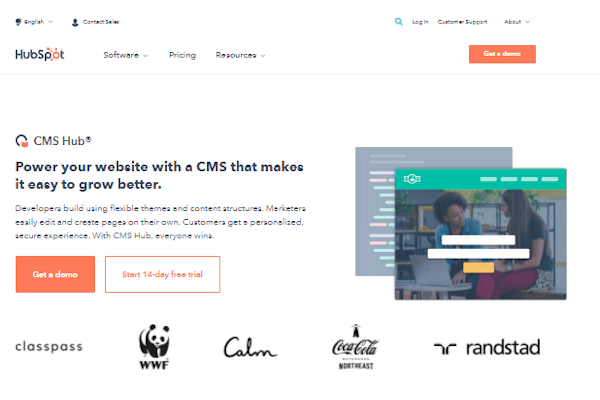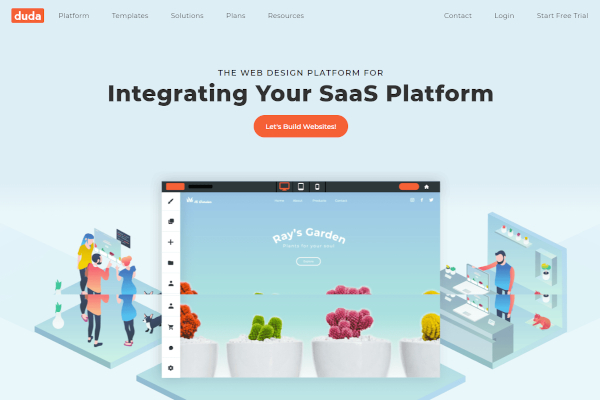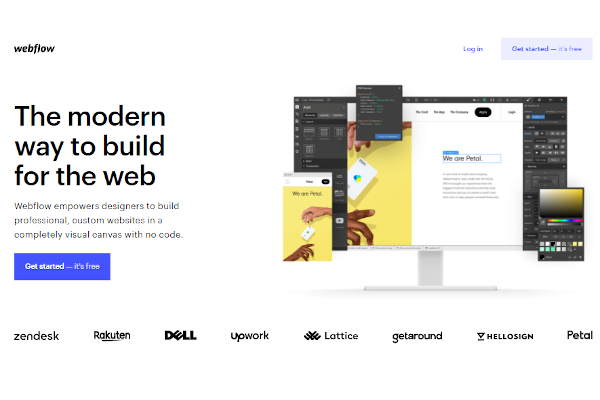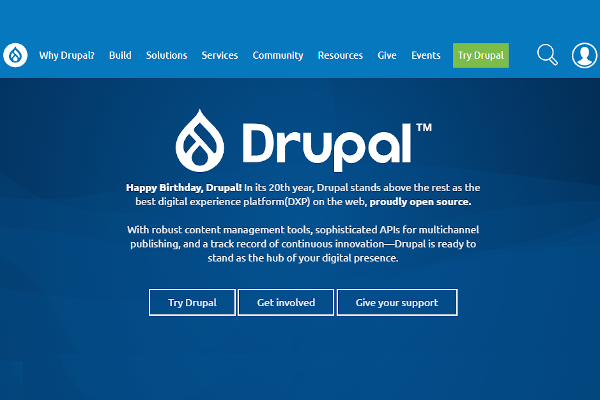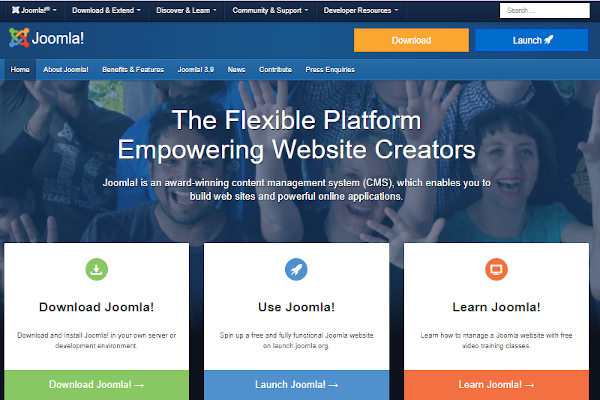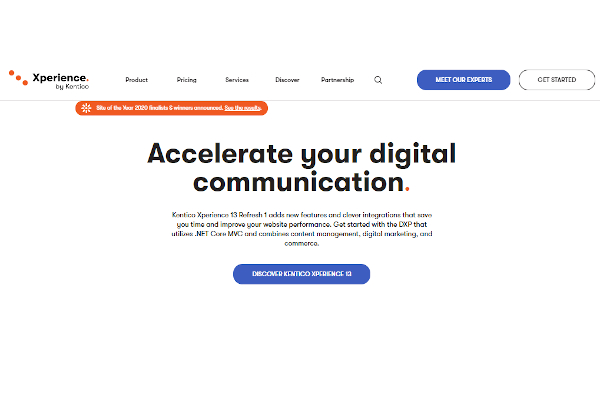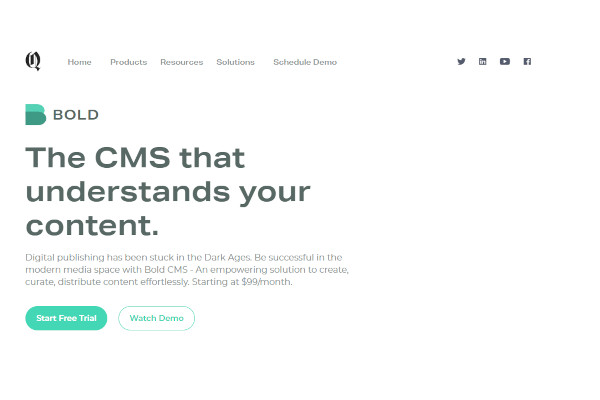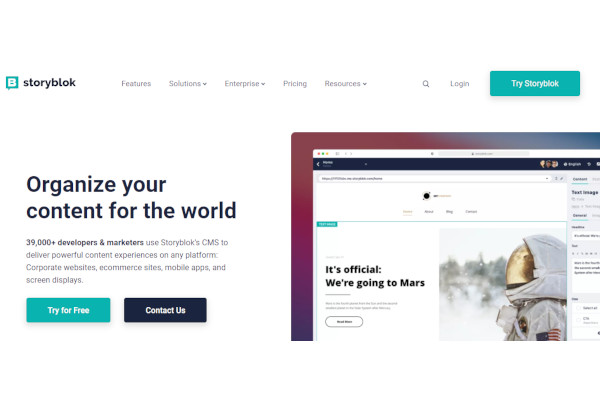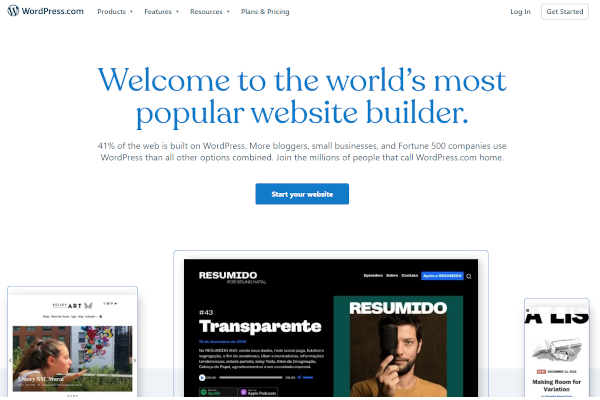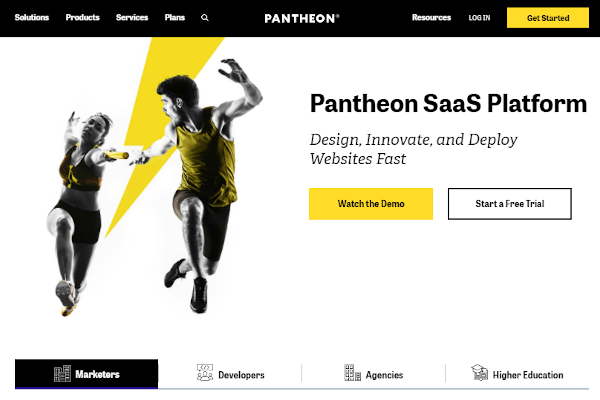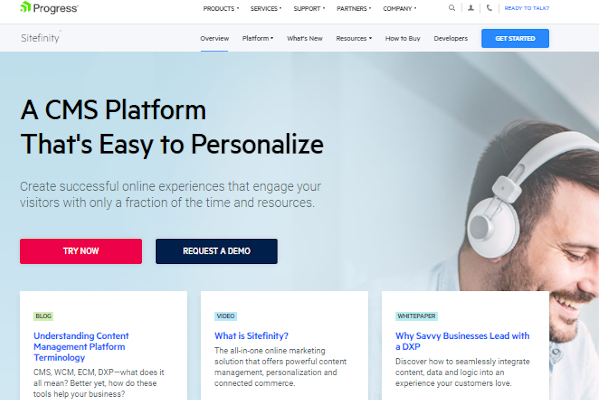Are you planning to create a website, and you only have a few people, if you’re not the only one, who can create content for the website? Concerned about lacking prior knowledge or skills with web programming or markup languages? Web content management system (WCMS), a type of content management system (CMS), got you covered.
Before we discuss what WCMS is and what it can do for you, let us first give you some excellent software products available in the market.
16+ Web Content Management Software
1. HubSpot CMS Hub
2. Duda
3. Webflow
4. Sitecore
5. Umbraco
6. Drupal
7. Joomla
8. Contentful
9. Contentstack
10. Kentico Kontent
11. Kentico Xperience
12. magento
13. Bold
14. Storyblok
15. WordPress.com
16. Pantheon
17. Progress Sitefinity
What Is Web Content Management Software
Web content management software allows users to create, edit, and publish digital content — from text to interactive graphics and videos — for websites. Apart from that, WCMS tools can also organize, index, or present data uniquely for specific site visitors.
With the help of WCMS software, even users who do not have coding skills can upload and write content, thanks to the software’s theme-oriented templates for unique designs. On that note, basically, anyone can publish online as it eliminates the need for technical staff (or HTML experts).
Benefits
There many ways you can benefit from using WCM software, namely:
COSTS REDUCTION
WCMS is often expensive. Most of the time, it can also be free or offering subscriptions that out outweigh overall costs.
EASY USER EXPERIENCE
WCMS tools are mostly user-friendly for people who are not savvy with coding or mark up languages to create or update content.
EASY CUSTOMIZATION
A WCMS offers a universal layout that enables beginner users to create unique, customized front ends more easily.
OPTIMIZED WORKFLOW MANAGEMENT
The admin teams can control and personalize workflow management using WCMS. Some WCMS even have options for administrators to set up their own workflow.
SEARCH ENGINE OPTIMIZATION (SEO)
WCMS has editing tools necessary for improving search rankings. Using WCMS, you can easily create content with the right keywords, provide meta information, and create anchor texts (for internal or external links)
Features
WCMS has features that allow collaboration between multiple team members and third-party hosting platforms. Some WCMS can also integrate with marketing software, third-party CMS tools, or content analytics software. Others may also have digital asset management and web design functionalities. Most often, WCMS tools share features with enterprise content management (ECM), digital experience platforms (DXP), and ecommerce platforms.
When looking for a WCMS software product, make sure to look for these features:
– Web-based editing and publishing capabilities for text, image, audio, video files, etc.
– Templates for easier content creation
– Functionality for collaboration and approval for content creation
Top 10 Web Content Management Software
1. HubSpot CMS Hub
HubSpot CMS Hub makes it easier for companies to manage web content and pages personalized for different visitors. This CMS software product is optimized for devices and conversions.
HubSpot CMS Hub generates $1B in revenue and received good reviews.
2. WordPress.org
WordPress.org has good reviews and generates $125M in revenue, all made possible with the help of their 3,800 employees.
3. Pantheon
Pantheon has an estimated annual revenue of $45.1M and has 311 employees.
4. Duda
Duda is designed for professionals and agencies of all sizes, compelling team collaboration, and client management tools to build and manage websites.
Duda’s estimated annual revenue is currently at $32.8M per year.
5. Progress Sitefinity
Progress Sitefinity is trusted by more than 10,000 websites for web content management systems to engage, convert, and retain visitors across the entire customer lifecycle.
Progress Sitefinity generates $122.4M in revenue and 1,500 employees.
6. Yext
Launched in October 2019, Yext offers a wide range of AI-powered solutions for every business need. Yext has 930 employees and makes $354.7M in revenue.
7. Contentstack
Contentstack was founded in 2018 to empower marketers and developers to collaborate around content. Contentstack makes $28.7M in revenue and has 207 employees.
8. Contentful
Contentful was founded in 2013 to enable teams to unify content in a single hub and structure it for use in any digital channel. Besides that, Contentful also lets teams integrate content seamlessly with hundreds of other tools through open APIs and powerful integration capabilities.
Contentful has 400 employees and generates $84M in revenue.
9. Kentico Xperience
Kentico Xperience was introduced in 2004 to provide a digital platform that combines content management, digital marketing, and commerce. Kentico Xperience has 250 employees and generates $52M in revenue.
10. Concrete5
Concrete5 was launched in 2008 and has become popular since then. Concrete5 has 45 employees and makes $1.2M in revenue.
FAQ
Why Should Companies Use CMS?
Content management systems (CMS) allow companies to optimize their website’s lead-generating potentials. Apart from that, CMS also allows maintaining consistency, a vital part of building audience trust, create a positive customer experience, and build brand awareness.
How Does CMS Work in Web Design?
CMS applications allow users to manage and publish web content without having to beg a web developer.
How Do You Know If the CMS Is Good?
A good CMS is flexible and creates opportunities to present content uniquely and interestingly. As a rule of thumb, CMS should be flexible enough to allow designers and developers to provide directions as to how the website will look and let users with less coding skills create and edit content easily.
Not everyone is skilled with HTML, coding, and other aspects related to front- and back-end web development. But for sure, everyone can write and/or create videos. Everyone can own a business and venture into digital marketing. This is why WCMS was developed to make that possible.
Related Posts
10+ Best Chemical Software for Windows, Mac, Android 2022
12+ Best Vulnerability Scanner Software for Windows, Mac, Android 2022
4+ Best Bundled Pay Management Software for Windows, Mac, Android 2022
10+ Best Trust Accounting Software for Windows, Mac, Android 2022
10+ Best Patient Portal Software for Windows, Mac, Android 2022
13+ Best Virtual Reality (VR) Software for Windows, Mac, Android 2022
12+ Best Bed and Breakfast Software for Windows, Mac, Android 2022
15+ Best Resort Management Software for Windows, Mac, Android 2022
14+ Best Hotel Channel Management Software for Windows, Mac, Android 2022
12+ Best Social Media Monitoring Software for Windows, Mac, Android 2022
10+ Best Transport Management Software for Windows, Mac, Android 2022
10+ Best Other Marketing Software for Windows, Mac, Android 2022
10+ Best Top Sales Enablement Software for Windows, Mac, Android 2022
8+ Best Industry Business Intelligence Software for Windows, Mac, Android 2022
10+ Best Insurance Agency Software for Windows, Mac, Android 2022

